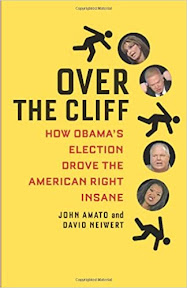 by Joseph E. Stiglitz
by Joseph E. Stiglitz Via Vanity Fair
When the current crisis is over, the reputation of American-style capitalism will have taken a beating—not least because of the gap between what Washington practices and what it preaches. Disillusioned developing nations may well turn their backs on the free market, warns Nobel laureate Joseph E. Stiglitz, posing new threats to global stability and U.S. security.
While there may be no winners in the current economic crisis, there are losers, and among the big losers is support for American-style capitalism. This has consequences we’ll be living with for a long time to come.
In truth, historians will mark the 20 years since 1989 as the short period of American triumphalism. With the collapse of great banks and financial houses, and the ensuing economic turmoil and chaotic attempts at rescue, that period is over. So, too, is the debate over “market fundamentalism,” the notion that unfettered markets, all by themselves, can ensure economic prosperity and growth. Today only the deluded would argue that markets are self-correcting or that we can rely on the self-interested behavior of market participants to guarantee that everything works honestly and properly.
The economic debate takes on particular potency in the developing world. Although we in the West tend to forget, 190 years ago one-third of the world’s gross domestic product was in China. But then, rather suddenly, colonial exploitation and unfair trade agreements, combined with a technological revolution in Europe and America, left the developing countries far behind, to the point where, by 1950, China’s economy constituted less than 5 percent of the world’s G.D.P. In the mid–19th century the United Kingdom and France actually waged a war to open China to global trade. This was the Second Opium War, so named because the West had little of value to sell to China other than drugs, which it had been dumping into Chinese markets, with the collateral effect of causing widespread addiction. It was an early attempt by the West to correct a balance-of-payments problem.
Colonialism left a mixed legacy in the developing world—but one clear result was the view among people there that they had been cruelly exploited. Among many emerging leaders, Marxist theory provided an interpretation of their experience; it suggested that exploitation was in fact the underpinning of the capitalist system. The political independence that came to scores of colonies after World War II did not put an end to economic colonialism. In some regions, such as Africa, the exploitation—the extraction of natural resources and the rape of the environment, all in return for a pittance—was obvious. Elsewhere it was more subtle. In many parts of the world, global institutions such as the International Monetary Fund and the World Bank came to be seen as instruments of post-colonial control. These institutions pushed market fundamentalism (“neoliberalism,” it was often called), a notion idealized by Americans as “free and unfettered markets.” They pressed for financial-sector deregulation, privatization, and trade liberalization.
Free-market ideology turned out to be an excuse for new forms of exploitation. “Privatization” meant that foreigners could buy mines and oil fields in developing countries at low prices. It meant they could reap large profits from monopolies and quasi-monopolies, such as in telecommunications. While capital flowed freely, labor did not—except in the case of the most talented individuals, who found good jobs in a global marketplace.
Many in the developing world still smart from the hectoring they received for so many years: they should adopt American institutions, follow our policies, engage in deregulation, open up their markets to American banks so they could learn “good” banking practices, and (not coincidentally) sell their firms and banks to Americans, especially at fire-sale prices during crises. Yes, Washington said, it will be painful, but in the end you will be better for it. America sent its Treasury secretaries (from both parties) around the planet to spread the word. In the eyes of many throughout the developing world, the revolving door, which allows American financial leaders to move seamlessly from Wall Street to Washington and back to Wall Street, gave them even more credibility; these men seemed to combine the power of money and the power of politics. American financial leaders were correct in believing that what was good for America or the world was good for financial markets, but they were incorrect in thinking the converse, that what was good for Wall Street was good for America and the world.














We are so screwed.
ReplyDeleteHey I wanted to come by and thank you for promoting the Million Can March. Please let me know how many cans you and your readers donate so I can add them to the total.
ReplyDelete